This is the base code:
foreach ($event in Get-WinEvent -FilterHashtable @{LogName='Security';ID=5152}) {
$xml = [xml]$event.toxml();
$xml.event.eventdata.data |
foreach { $hash = @{} } { $hash[$_.name] = $_.'#text' } { [pscustomobject]$hash } |
Where FilterOrigin -notmatch 'stealth|unknown|Query User Default'
}
the output is this:
I want to replace FilterOrigin with Firewall Display name, direction with either inbound or outbound and protocol with correct name from here.
I just need to know how to do one or two of them, then I can do the rest myself once I know the syntax/pattern.
starting with FilterOrigin, I tried this:
foreach ($event in Get-WinEvent -FilterHashtable @{LogName='Security';ID=5152}) {
$xml = [xml]$event.toxml();
$xml.event.eventdata.data |
foreach { $hash = @{} } { $hash[$_.name] = $_.'#text' } { [pscustomobject]$hash } |
Where FilterOrigin -notmatch 'stealth|unknown|Query User Default' | ForEach-Object {
if ($_.filterorigin -match ($pattern = '{.+?}'))
{
$_.filterorigin -replace $pattern, (Get-NetFirewallRule -Name $Matches[0]).DisplayName
}
}
}
But the output is only the Firewall displaynames, so it does recognize the Firewall name (which is the ID you see in the FilterOrigin) but doesn't replace it inside the object.
for Protocol, let's say I only want to replace TCP (6) and UDP (17), how should I do that?
for Direction, %%14592 is for inbound and %%14593 is for outbound
UPDATE:
foreach ($event in Get-WinEvent -FilterHashtable @{LogName='Security';ID=5152}) {
$xml = [xml]$event.toxml();
$xml.event.eventdata.data |
foreach { $hash = @{} } { $hash[$_.name] = $_.'#text' } { [pscustomobject]$hash } |
Where FilterOrigin -notmatch 'Stealth|Unknown|Query User Default|WSH Default' | ForEach-Object {
$pattern = '\{.+?\}'
$_.FilterOrigin = $_.FilterOrigin -replace $pattern, (Get-NetFirewallRule -Name $Matches[0]).DisplayName
$protocolName = @{ 6 = 'TCP'; 17 = 'UDP' }[$_.Protocol]
$_.Protocol = if (-not $protocolName) { $_.Protocol } else { $protocolName }
# Conceptually clearer PowerShell (Core) 7+ alternative:
$_.Direction = $_.Direction -eq '%%14592' ? 'Outbound' : 'Inbound'
# $_.Direction = ('Outbound', 'Inbound')[$_.Direction -eq '%%14592']
$_
}
}
So with this script, there are few problems,
- the protocol isn't replaced, still the numbers are displayed
- FilterOrigin shows up empty
- there is a constant error after each result
in the picture, only the direction is being applied correctly. the filter that blocked the connection shown in the script has a name but it's name not showing up.

